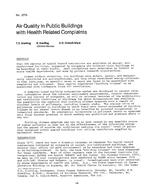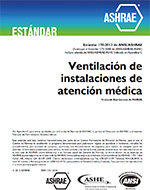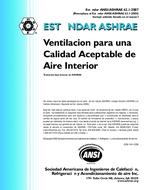Description
Over 200 reports of health hazard evaluations are available of sealed, air-conditioned buildings, requested by occupants who believed their buildings to be hazardous to their health. Most evaluations were undertaken by federal or state health departments, and some by private research organizations.
Almost without exception, the buildings were modern, sealed, and mechanically ventilated and air-conditioned, and very often considered energy-efficient. In most instances, no specific cause or agent was found to be associated with complaints and illnesses. Many reports considered “building illness” to be associated with inadequate fresh air ventilation.
A computer-based building information system was developed to extract relevant information about the internal environment measurements, disease characteristics and history of occupants, as well as relevant features of the architecture and ventilation conditions of buildings for which documentation was available. The possibility was explored that building illness symptoms were a result of elevated levels of pollutants, including tobacco smoke. The average value of pollutants recorded in buildings in which there were severe outbreaks of building illness do not exceed levels deemed to be hazardous by accepted occupational or industrial standards. No substantial differences in pollutant levels or symptoms were found between premises in which smoking was prohibited and premises where it was not.
Building illness symptoms may not be so much caused by any specific source of indoor pollution as they are by the effectiveness of the filtration system and the amount of outside air ventilation reducing the overall level of pollution contained within sealed buildings that utilize ventilation supplied by mechanical means.
Citation: ASHRAE Transactions, 1983, vol. 89, pt. 2A, Washington, D.C.
Product Details
- Published:
- 1983
- Number of Pages:
- 15
- File Size:
- 1 file , 15 MB
- Product Code(s):
- D-DC-2773




